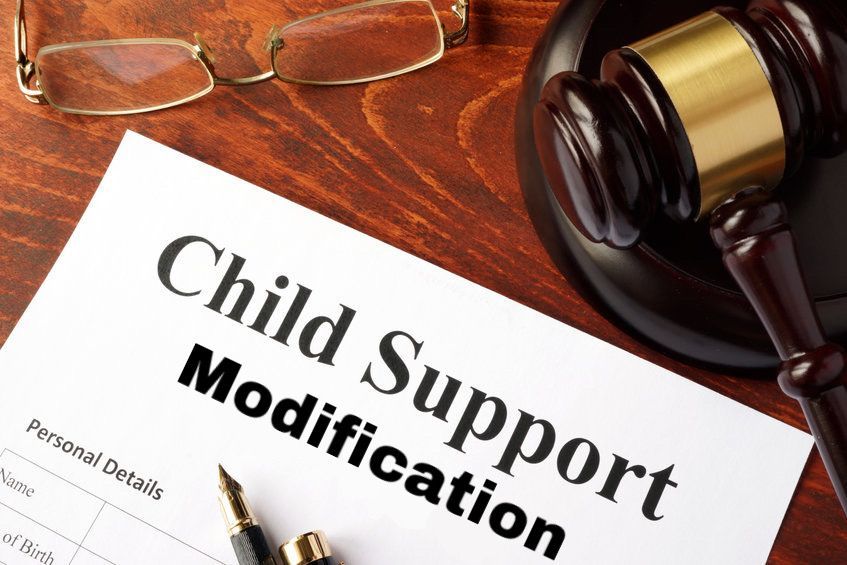Who Pays for Childcare When Separated?
Both parents typically share childcare costs when separated, even if only one parent uses daycare. Courts usually split these expenses based on each parent's income, not who spends more time with the child. This means the parent who earns more pays a bigger share of daycare bills.
Going through a separation is hard enough without worrying about money. When you add childcare costs to the mix, things get even trickier. Many parents wonder: Who's supposed to pay for daycare? Does child support cover it? What if we can't agree?
This guide breaks down everything you need to know about childcare costs after separation. You'll learn how courts decide who pays what, why both parents usually share costs, and what to do if your ex won't pay their fair share.
Understanding Childcare Costs and Child Support
What Counts as Childcare?
Childcare includes any care your child gets when you can't be there. This covers:
- Daycare centers and preschools
- Before and after school programs
- Babysitters and nannies
- Summer camps and day programs
- Family members you pay to watch your child
Between 2020 and 2024, daycare costs jumped up 22%. For many families, this is one of the biggest monthly bills they face.
Is Childcare Different from Child Support?
Yes. Child support and childcare costs are two separate things.
Child support covers basic living costs like food, clothes, personal care items, and housing. Think of it as money for your child's everyday needs.
Childcare costs are extra. They're the fees you pay someone else to watch your child while you work or go to school. Most courts treat childcare as a separate expense on top of regular child support.
How Much Does Childcare Really Cost?
Parents now pay an average of $343 per week for daycare. That's over $1,370 each month for just one child. If you have two kids in daycare, you could easily spend $2,500 to $3,000 monthly.
In large cities, families spend up to 19% of their household income on childcare alone. For a family making $50,000 a year, that's almost $10,000 going just to daycare.
These numbers show why childcare costs matter so much in separation cases. Neither parent can usually afford to pay the full cost alone.
Who Actually Pays for Childcare When You Separate?
Both Parents Share the Cost
Courts believe childcare expenses are an obligation of both parents and that both parents have the right and responsibility to be employed. This is true even if:
- Only one parent uses daycare
- The child doesn't go to daycare on the other parent's days
- One parent makes way more money
- One parent doesn't think daycare is needed
The thinking is simple: both parents should work to support their child. If one parent needs daycare to work, both parents should help pay for it.
How Courts Split Childcare Costs
Courts usually divide childcare expenses according to each parent's income. Here's how it works:
Let's say Mom makes $60,000 a year and Dad makes $40,000. Together, they make $100,000.
- Mom earns 60% of the total income
- Dad earns 40% of the total income
If daycare costs $1,200 a month:
- Mom pays $720 (60% of $1,200)
- Dad pays $480 (40% of $1,200)
This split stays the same no matter who actually drops the child off at daycare or whose work schedule requires it.
What If Only One Parent Needs Daycare?
Some parents think: "I don't use daycare on my days, so why should I pay for it?"
Courts don't see it that way. The parent who makes more money is usually expected to contribute a greater share of childcare expenses, even if they don't use childcare services directly.
Why? Because courts want both parents to be able to work and support their child. If only the parent using daycare had to pay, they might not be able to afford to work at all.
Different Ways to Split Childcare Expenses
The Income Share Model
This is the most common way courts split costs. Most states use this model where each parent gives a percentage of their income that matches what they earn compared to the other parent.
Example: If you earn 65% of the combined income, you pay 65% of daycare costs.
The 50-50 Split
Some parents agree to split everything down the middle, no matter who makes more. In California, if parents can't agree, the court will order them to split childcare costs 50-50.
This works best when:
- Both parents earn similar amounts
- Parents share custody equally
- Both parents agree it's fair
Regular Costs vs. Extra Costs
Some couples divide costs into two groups: regular expenses like food and rent (A Expenses) and non-regular costs like emergency medical bills and school supplies (B Expenses).
Regular monthly costs get covered by child support. Extra costs get split separately when they come up.
This approach helps both parents budget better. You know what you'll pay each month, and you only deal with extra costs as they happen.
Payment Methods That Work
There are several ways to handle the actual payments:
Direct Payments : One parent pays the other for their share. Keep good records and receipts.
Reimbursement : One parent pays the childcare provider, and the other parent reimburses their share. Agree on timing so no one waits too long for their money back.
Shared Account : Both parents put money into a joint account just for childcare. Pay the provider from this account. This keeps things clear and fair.
Payment Apps : Digital payment platforms like Venmo or PayPal offer an easy way to send and track payments. You'll have a clear record of every payment.
Rhode Island Childcare and Child Support Laws
How Rhode Island Calculates Child Support
Rhode Island uses the income shares model based on the philosophy that children are entitled to the standard of living based on both parents' monthly income.
The court looks at:
- Both parents' gross income before taxes
- The number of children you have together
- Childcare expenses needed for work or school
- Health insurance costs
- Any special needs your child has
Childcare Costs in Rhode Island Orders
In Rhode Island, a party will be ordered to pay approximately the same percentage of daycare that matches their percentage of the combined gross income.
Example from Rhode Island law: If the husband makes $100,000 and the wife makes $50,000:
- Combined income = $150,000
- Husband earns 66% of total
- Wife earns 34% of total
- Husband pays 66% of daycare costs
- Wife pays 34% of daycare costs
Rhode Island treats childcare costs as a mandatory deduction for basic child support. This means childcare gets built into the child support calculation, not added on top as a separate bill.
Getting Help with Child Support in Rhode Island
If you need help establishing or changing child support, you have options. Child support cases in Rhode Island can be handled through:
- The Rhode Island Office of Child Support Services
- Rhode Island Family Court
- Private attorneys who handle divorce and family law cases
The application fee for opening a support case through the state is just $20. But many parents find that working with an experienced lawyer helps them get a fair result faster.
What If Your Ex Won't Pay Their Share?
Document Everything
Keep records of:
- All childcare bills and receipts
- Proof of payments you've made
- Messages where you asked for payment
- Any agreements you made about costs
Good records help if you need to go to court.
Try to Talk It Out First
Before going to court, try to work it out. Send a clear message about what they owe and when you need payment. Be calm and stick to the facts.
Sometimes people don't pay because:
- They don't think they have to
- They can't afford it right now
- They think the cost is too high
- They're angry about something else
Understanding why can help you find a solution.
File a Motion to Modify Support
If childcare is a new expense, the custodial parent needs to file a motion for modification of child support based on changed financial circumstances.
You'll need to show:
- The cost of childcare (bring contracts or receipts)
- Why you need childcare (work schedule, school, job training)
- How much the other parent should pay based on income
The non-custodial parent doesn't have to reimburse until the court adjusts the child support. But many do anyway because it's for their child.
Court Enforcement Options
If someone won't follow a court order to pay childcare costs, the court can:
- Take money directly from their paycheck
- Take their tax refund
- Suspend their driver's license
- Hold them in contempt of court
Working with a family law attorney can help you understand which option works best for your situation.
Common Questions About Childcare Costs
Does Child Support Already Cover Daycare?
Not always. Child support payments don't always cover childcare expenses, but they can be divided after divorce.
Check your child support order. It should say whether childcare is included in the monthly payment or handled separately.
Who Pays for Childcare on Dad's Days?
The parent is responsible for paying for childcare on their days. However, the cost still gets split based on income percentage, not who's using it.
This can get confusing. Even though Dad might use daycare on his days, both parents still share the total monthly cost based on their income split.
What If Childcare Wasn't in the Original Order?
If the child support order doesn't mention childcare, parents generally must share work-related childcare expenses.
You can either:
- Agree on a split between yourselves
- File for a modification to add childcare to the order
It's better to get it in writing through the court. Informal agreements can fall apart when people disagree.
Can I Use My Dependent Care FSA?
Maybe. Only the custodial parent is permitted to utilize the dependent care FSA for the child's daycare expenses.
The custodial parent is whoever the child lives with more nights during the year. If nights are equal, it's the parent with higher income.
The non-custodial parent cannot use the FSA benefit, even if they pay part of the childcare costs.
What About Summer Camps and After-School Programs?
These usually count as childcare if they're needed for work. Courts look at:
- Whether you need the care to work
- If it's during your normal work hours
- Whether it's a regular program or a one-time thing
Fancy summer camps that cost thousands might not count as necessary work-related childcare. But a basic day camp while you work probably would.
What If My Income Changes?
When your income goes up or down significantly, you can ask the court to modify child support and childcare costs.
What counts as significant? Usually a change of 15% to 20% or more in your income.
File a motion to modify as soon as your income changes. The new order runs retroactive to the date you file the motion, not when your circumstances changed. Don't wait or you could lose money.
Tips for Managing Childcare Costs After Separation
Choose Childcare Together When Possible
Even if you don't get along, try to agree on childcare. When both parents pick the provider together:
- Both feel better about paying for it
- The child gets consistent care
- There are fewer arguments later
If you can't agree, child custody orders usually say who gets to make the final decision.
Be Clear About Expectations
Put everything in writing:
- What childcare costs are covered
- How much each person pays
- When payments are due
- How to handle changes or extra costs
Clear expectations prevent fights later.
Plan for Unexpected Costs
Kids get sick. Daycares close for holidays. You might need backup care. Talk about how to handle these surprise costs before they happen.
Some parents keep a small emergency fund for childcare surprises. Others agree to split unexpected costs 50-50 even if their regular split is different.
Keep Communication Open
Money fights are common after separation. But they hurt your child. Try to:
- Stay calm when discussing costs
- Focus on your child's needs, not old arguments
- Use email or text so you have records
- Respond within a reasonable time
If you can't communicate well, use a co-parenting app or have lawyers handle money discussions.
Review Costs Regularly
Childcare needs change as kids grow. A toddler in full-time daycare costs more than a school-age child who just needs after-school care.
Review your childcare arrangements and costs every year. Make sure they still fit your child's needs and both parents' budgets.
When to Talk to a Lawyer
Some childcare situations are simple. Others get messy fast. Consider getting legal help if:
- Your ex won't pay their share
- You can't agree on what childcare is needed
- One parent wants to change providers and the other says no
- Income has changed a lot since the original order
- The current arrangement isn't working
An experienced Rhode Island family law attorney can:
- Explain your rights under state law
- Help calculate fair childcare splits
- File court motions when needed
- Negotiate with your ex's lawyer
- Represent you in court hearings
Most family law firms offer a first meeting where you can ask questions and learn your options. This gives you a chance to understand what help you might need.
Final Thoughts
Figuring out who pays for childcare when separated doesn't have to be a nightmare. The key things to remember are:
Both parents typically share childcare costs based on their income, not just who uses daycare. Courts want both parents to be able to work and support their child.
Get everything in writing through a court order. Informal agreements fall apart when people disagree.
Keep good records of all childcare costs and payments. You'll need them if you have to go to court.
Try to work together when picking childcare and managing costs. Your child does better when parents cooperate.
Don't wait to get help if things aren't working. The sooner you address problems, the easier they are to fix.
Childcare costs are just one piece of the puzzle after separation. But getting this part right makes everything else easier. When both parents pay their fair share, your child gets the care they need, and both parents can focus on moving forward.
If you're dealing with childcare cost issues in Rhode Island, the experienced family law team at Inman & Tourgee can help. We understand how tough these situations are, and we're here to guide you through it. Call us at (401) 823-9200 to schedule a consultation and learn more about your options.











